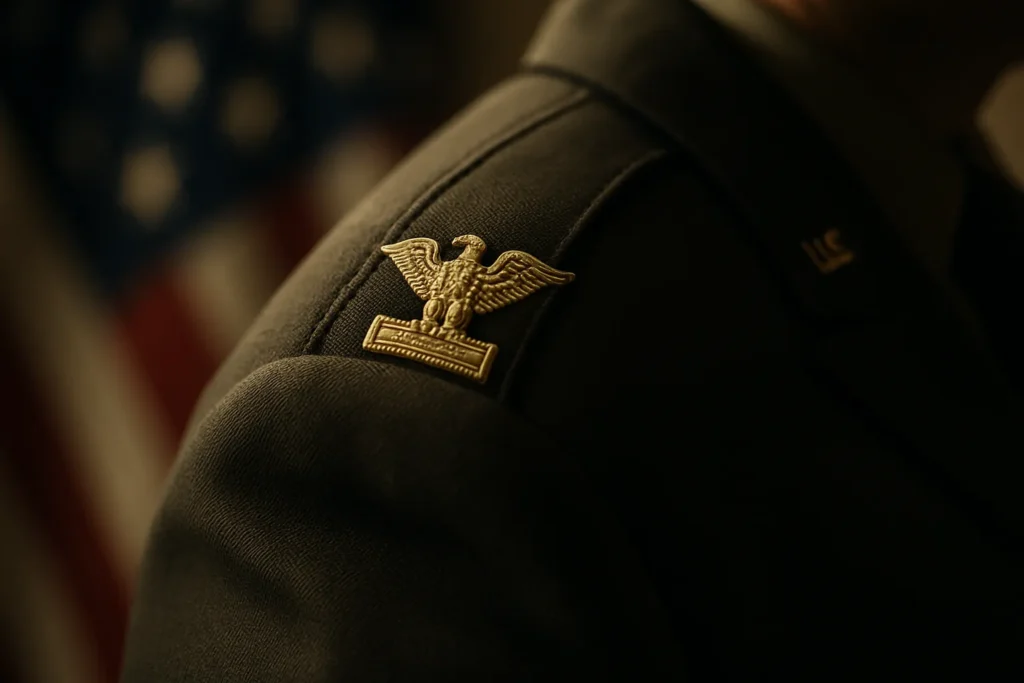Unprecedented Encounters: A Commander-in-Chief Upends Tradition
Imagine a room where the nation’s highest uniformed officers once waited anxiously on the outcome of a rigorous, nonpartisan review—a process purposely designed to keep politics out of military merit. Now picture that same room, but this time there’s a palpable shift: President Donald Trump sits across from a four-star general candidate, not as a distant executive, but as an interviewer evaluating their ideological fit. This isn’t a political drama. It’s the new reality as Trump has broken with decades of post-World War II precedent by personally meeting with nominees for the military’s vaunted four-star rank, a decision the White House openly acknowledges.
The departure from tradition is no trivial matter. Historically, presidents trusted the apolitical processes and expert judgment embedded within the Pentagon, allowing nominations to surface from within—and limiting the commander-in-chief’s direct role. According to the New York Times, and confirmed by a White House spokesperson, these recent meetings aim to “ensure the military remains the greatest and most lethal fighting force in history.” Yet beneath this official line lurks a more disturbing trend: the growing intertwining of loyalty tests and political litmus into the very fabric of national defense.
Harvard military historian Dr. Sophia Carter describes this as “a dangerous infusion of politics” into what was designed to be a professional, nonpartisan system. “When presidents seek not just competence but ideological alignment with their appointees, that’s when the military’s independent ethos is at risk,” Carter warned during a recent CNN panel.
The Politics Behind the Epaulets: Loyalty Tests on Parade
When President Trump replaced the chairman of the Joint Chiefs of Staff and warned of rooting out “wokeness” in the military, critics saw more than routine change—they saw warning lights flashing around American democracy’s most carefully guarded boundaries. The four-star general, a position designed to be above the partisan fray, is now subject to personal interviews and, some argue, an ideological vetting process rarely seen outside political appointments.
Supporters like Senator Tom Cotton have lauded the process, framing Trump’s personal involvement as serious stewardship. Cotton argued, “Every president should care who leads our armed forces.” Except, as many historians remind us, this care wasn’t meant to manifest as direct partisan influence. Traditionally, highly decorated generals arrived in the president’s office only for formal introductions, not ideological cross-examinations.
Concerns grow louder when examined against Trump’s recent actions. After deploying the National Guard to Los Angeles—despite fierce objections from California Gov. Gavin Newsom—and using uniformed soldiers as backdrop for campaign-style events, critics insist this is about more than military readiness. It’s about command loyalty. As Dr. Carter dramatically put it:
“Trump is steadily poisoning the nonpartisan, apolitical nature of the military’s leadership—something America has painstakingly built since the founding of the republic.”
A closer look reveals that these meetings haven’t emerged from a vacuum. Defense Secretary Pete Hegseth, whose influence at the Pentagon has grown sharply, initiated this model. The goal appears clear: create a leadership cohort whose primary allegiance lies not just with country but with a particular vision of it.
Pew Research polling underscores just how toxic politicization can be. Confidence in the military’s impartiality holds steady as one of the pillars of American democracy; undermine it, and trust erodes—across all political stripes. Nearly two-thirds of Americans say that the armed forces should remain as far from politics as possible. Yet these new practices blur the red lines with potentially devastating consequences for public confidence and national cohesion.
Historical Parallels and Grave Warnings for the Future
Advocates on the political right say Trump’s approach is a correction—a necessary intervention against what they call bureaucratic inertia and a military tainted by “woke” ideology. Yet, history issues a sobering rebuke to such justifications. Before and after World War II, world powers that allowed leaders to test top brass for loyalty—rather than merit—often paid the price in both military failure and weakened democratic institutions. The United States has long prided itself on standing apart from that fate.
The late Senator John McCain, himself a war hero, warned against “the creeping politicization of the officer corps,” reminding fellow lawmakers during hearings that America’s military wins not just because of advanced weaponry, but because its commanders are trusted to rise above politics. That lesson, hard-fought and hard-won, now faces its sternest test since Vietnam.
At stake is not just the composition of the nation’s top military echelons, but the principle that those who wield incredible power carry out their duties for the country—never for a party. When the commander-in-chief seeks out only those who mirror his political worldview, soldiers across the chain of command receive a chilling message: ideology matters more than excellence.
Policy experts from the nonpartisan Brookings Institution have highlighted a further risk: precedent. Once one president personalizes these appointments, what’s to stop others from doing the same—perhaps with far less subtlety or restraint? “The long-term effect,” senior fellow Michael O’Hanlon wrote, “is a military force fractured by politics, vulnerable to the whims of whichever party controls the White House.”
On the ground, you feel the tremors already. Officers with decades of distinguished service now whisper anxiously about future promotions, wondering whether their careers hinge less on battlefield decisions than on political fealty. It’s not alarmism to note that when serving military leaders must calibrate their words and loyalties, the nation’s security—and its democracy—are on a knife edge.

